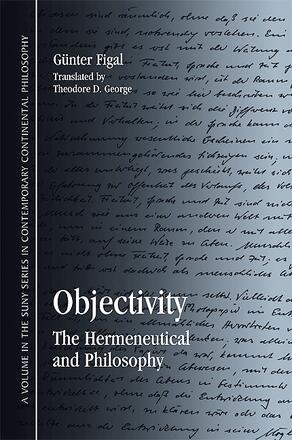
Objectivity
The Hermeneutical and Philosophy
Alternative formats available from:
Appearing for the first time in English, Günter Figal’s groundbreaking book in the tradition of philosophical hermeneutics offers original perspectives on perennial philosophical problems.
Description
Günter Figal has long been recognized as one of the most insightful interpreters working in the tradition of philosophical hermeneutics and its leading themes concerned with ancient Greek thought, art, language, and history. With this book, Figal presses this tradition of philosophical hermeneutics in new directions. In his effort to forge philosophical hermeneutics into a hermeneutical philosophy, Figal develops an original critique of the objectification of the world that emerges in modernity as the first stage in his systematic treatment of the elements of experience hermeneutically understood. Breaking through the prejudices of modernity, but not sacrificing the importance and challenge of the objective world that confronts us and is in need of interpretation, Figal reorients how it is that philosophy should take up some of its most longstanding and stubborn questions. World, object, space, language, freedom, time, and life are refreshed as philosophical notions here since they are each regarded as elements of human life engaged in the task assigned to each of us—the task of understanding ourselves and our world.
Günter Figal is Professor of Philosophy at the University of Freiburg, Germany, where he holds the Husserl and Heidegger Chair. He is the author of several books, including For a Philosophy of Freedom and Strife: Politics, Aesthetics, Metaphysics, also published by SUNY Press. Theodore D. George is Associate Professor of Philosophy at Texas A&M University. He is the author of Tragedies of Spirit: Tracing Finitude in Hegel's Phenomenology, also published by SUNY Press.
Reviews
"Figal's work launches a renewal of hermeneutics in the broadest sense. Through his investigation of the hermeneutical dimension of experience and of language, he enlarges the scope of hermeneutics to such an extent that it comes to coincide with philosophy as such. Thus, he takes up not only questions concerning understanding and interpretation but also the classical philosophical issues of space and time, of language and speech, and of life and reason. Objectivity is a thoroughly original and rigorous work, which retrieves much of the content of the philosophical tradition while also advancing into the still uncharted territory opened up by recent philosophical thought. " — John Sallis, author of Platonic Legacies